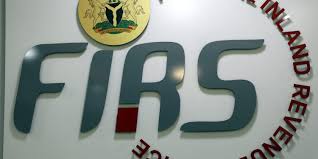The Federal Inland Revenue Service (FIRS) has announced that it will roll out a nationwide electronic invoicing (e-invoicing) system by July 25, 2025, as part of ongoing efforts to improve tax transparency, ensure compliance, and drive economic development in Nigeria.
Speaking during a two-day engagement with manufacturers and stakeholders in the oil and gas midstream sector held in Lagos, top officials from FIRS said the new system would make tax reporting faster, more accurate, and less prone to fraud.
The e-invoicing platform, developed locally by D’Accubin Technology Limited, is designed to align with international standards and enable machine-readable invoices for seamless integration into recipients’ accounting systems.
According to Sediq Arogundade, the Lead Consultant for the FIRS Merchant Buyer System (MBS), the meeting was part of wider consultations aimed at capturing the peculiarities of different sectors before full deployment. He said the service has adopted a phased implementation strategy, starting with large taxpayers.
“We are already piloting the system with several large companies. Some are fully ready to go live in July. The response has been encouraging. Many businesses that had never worked closely with FIRS are now showing interest,” Arogundade said.
He added that while participation is not yet mandatory, the system is fully ready and built on 100 per cent RESTful API technology, which allows smooth integration into existing accounting software and POS systems.
“This is a regulatory tool, not a commercial product. We expect Original Equipment Manufacturers (OEMs) and software developers to create plugins and tools that integrate e-invoicing with businesses’ internal systems,” he explained.
Arogundade also highlighted that the system is designed around the Pan European Procurement Online (PEPPOL) standard to ensure interoperability, data security, and real-time or near real-time tax reporting.
He stated that the system would also support cross-border trade by enabling Nigeria-based businesses to generate tax-compliant invoices for international transactions, thereby improving the country’s global competitiveness.
Richard Kimeku, the Director of Technology Development at FIRS, stressed that the e-invoicing project is not a payment platform, but a data collection system that gives the FIRS real-time access to transactional information.
“This is a game changer. It allows us to track transactions, understand tax liabilities better, and prevent dishonest practices such as turnover suppression,” Kimeku said.
He added that beyond tax collection, the data will support economic planning, help businesses understand market trends, and even assist in security monitoring.
Also speaking at the event, Mike Adoga, Acting Director of Tax Automation at FIRS, said the e-invoicing system is a key pillar of the National E-Invoicing Project. He explained that once it becomes fully operational, businesses and customers will be able to exchange invoices digitally with tax elements automatically calculated and recorded.
“The system improves efficiency, reduces manual errors, and boosts the overall ease of doing business in Nigeria,” Adoga said.
He encouraged businesses, especially those in manufacturing, oil and gas, retail, and technology, to prepare ahead by upgrading their internal accounting systems or engaging OEMs to assist in integration.
Industry watchers have praised the move, saying it will help reduce tax evasion, improve transparency, and foster better relationships between the private sector and government regulators.
The pilot scheme is expected to focus on large taxpayers before extending to medium and small-scale enterprises later in the year.
FIRS officials also assured the public that proper sensitisation, training sessions, and technical support will be provided throughout the implementation process.
As Nigeria continues to explore more technology-driven tax systems, the e-invoicing initiative marks a significant step toward building a more transparent, efficient, and inclusive tax ecosystem.
